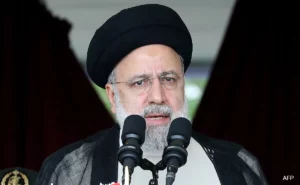Israeli Jets Bomb Syria, Lebanon

Israel, Syria, airstrikes,
Recent Israeli airstrikes have intensified tensions in the region, particularly affecting Syria and Lebanon, amidst growing protests against Israeli Prime Minister Benjamin Netanyahu. These military actions have resulted in significant casualties and damage, raising concerns about the implications for regional stability.
Overview of Recent Airstrikes
Israeli Attacks in Syria
On September 8, 2024, Israeli missiles targeted military installations in central Syria, particularly near Masyaf, resulting in the deaths of at least 18 individuals, with many more injured. Syrian state media reported that the strikes, described as “aerial aggression,” were launched from Lebanese airspace, highlighting a strategic choice by Israel to avoid Syrian air defenses, which are bolstered by Russian support. The attacks ignited fires and caused extensive material damage, with local hospitals indicating that many of the casualties were civilians.This incident is part of a broader pattern, as Israel has frequently conducted air raids in Syria during the ongoing civil war, primarily targeting sites associated with Iranian military operations. The Israeli military typically does not comment on these operations, maintaining a policy of ambiguity regarding its actions in Syria.
Impact on Lebanon
In a related incident, Israeli strikes also hit southern Lebanon, reportedly flattening a building and causing injuries. These strikes were part of a broader operation that has seen increased hostilities between Israel and Hezbollah, the Iran-aligned Lebanese militant group. The escalation follows Hezbollah’s own attacks against Israeli military targets in response to previous Israeli airstrikes that resulted in civilian casualties.
Context of Protests Against Netanyahu
The backdrop of these military actions is a wave of protests against Netanyahu’s government, fueled by public dissatisfaction with his handling of various domestic and foreign policy issues. The protests have intensified in recent weeks, coinciding with rising tensions in the region due to the ongoing conflict in Gaza and Israel’s military operations in Syria and Lebanon. Demonstrators have expressed their frustration over the government’s approach to security and its implications for Israeli society
Regional Tensions and Responses
The Iranian government has vowed to retaliate for the assassination of Hamas leader Ismail Haniyeh, which further complicates the regional dynamics. Iranian officials have indicated that a response is forthcoming, although no direct actions have been reported in the aftermath of the assassination. This situation adds another layer of tension, as Iran maintains a military presence in Syria and has threatened “harsh punishment” against Israel for its actions.
Hezbollah’s Role
Hezbollah has been actively engaged in retaliatory actions against Israel, asserting that its operations are aimed at military installations in northern Israel and the Golan Heights. The group has framed its military actions as support for Palestinians in Gaza, where the ongoing Israeli military campaign has resulted in substantial civilian casualties. The conflict between Hezbollah and Israel has seen daily exchanges of fire, indicating a precarious security situation along the Israel-Lebanon border.
Conclusion
The recent Israeli airstrikes in Syria and Lebanon, coupled with the increasing protests against Netanyahu, highlight a volatile situation in the region. As military actions escalate and public discontent grows, the potential for further conflict remains high. The international community is closely monitoring these developments, as the implications for regional stability could be profound, particularly if Iran or Hezbollah decide to escalate their responses.






